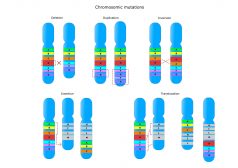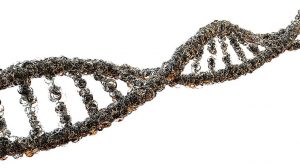Definition
noun
A deletion of a single nucleotide causing a shift in the reading frame of the codons in the mRNA, thus, may lead to the alteration in the amino acid sequence during protein translation
Supplement
Mutations may lead to permanent changes in the nucleotide sequence of the genome. Irreparable changes in the nucleotide sequence may result in the errors during replication and eventually to protein translation. There are many ways to classify mutations. One way is the extent of the effect on the structure. In this regard, mutations may be small scale or large scale. Nucleotide deletion is a small scale mutation since it affects a relatively small part of the gene. It occurs when a single nucleotide is deleted. It is also called point deletion. Other small scale mutations are base-pair substitutions (or point mutations) and insertions. In comparison, large scale mutations are those involving mutations in the chromosomal structure, such as amplifications, chromosomal deletions, chromosomal inversions, and loss of allele.
Nucleotide deletion involves a single nucleotide from the DNA. Despite the single nucleotide change, this mutation may lead to irreversible changes and altered reading frame of the gene (frameshift mutation).
Synonym:
- point deletion
See also:



